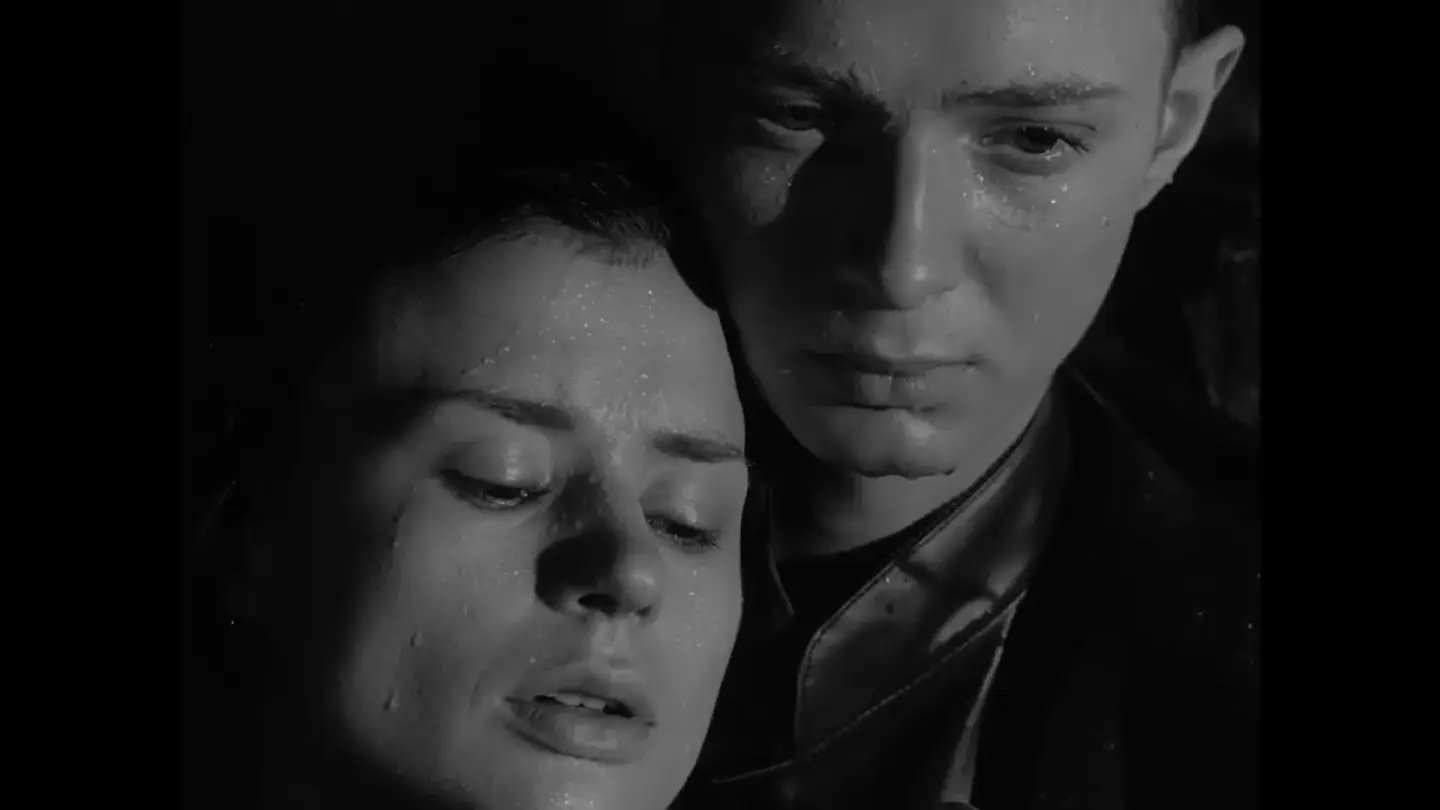Ingmar Bergman’s 1961 masterpiece, Through a Glass Darkly, is more than a film; it’s a harrowing journey into the depths of the human psyche. It explores the fragile boundary between sanity and madness, faith and despair.
Table of Contents
The film poses a profound philosophical question: What happens when the logical, ethical frameworks we live by crumble? Through the tragic story of its protagonist, Karin, Bergman suggests that in the face of true existential loneliness, objective knowledge becomes useless, and a desperate, often dangerous, leap of faith is all that remains.
Objective Knowledge is Useless
🤔 The Failure of a “Normal” Life
We typically live within a comfortable structure of societal rules and rational calculations. We follow ethical codes and make logical choices. But what happens when this framework proves insufficient? The film argues that a profound sense of individual loneliness, as described by the philosopher Søren Kierkegaard, can shatter this reality. When faced with the crushing weight of solitude and existential questions like “What can I do now?”, society’s rules and logical reasoning offer no real answers. This failure pushes the individual to search for something beyond the objective world.
🙏 The Leap of Faith Beyond Reason
When reason fails, faith often emerges. This is the “leap of faith,” a concept best illustrated by the biblical story of Abraham. Asked by God to sacrifice his beloved son, Abraham acts against all logic and paternal love. His action is not rational; it is a paradox born of pure belief. This analysis argues that such a leap is a fundamental human act. We must first believe in something—whether it’s a new job, a relationship, or a creative project—before we can act. The objective reasons and rationalizations are often constructed after the initial, subjective leap of faith has already been made.
🎬 Karin’s Pursuit of Radical Freedom
Karin’s journey in Through a Glass Darkly is a terrifying embodiment of this philosophical struggle. She attempts to achieve a state of “radical freedom” by detaching herself from all external, objective forces—her family, societal norms, and even her own sanity. She believes that by emptying herself of the world, God will manifest. However, the film argues that this pursuit of absolute freedom is itself a paradox. Taken to its extreme, it doesn’t lead to enlightenment but to illness, completely disconnecting the individual from reality.
⛓️ The Paradox: How Freedom Becomes a Prison
The very act of seeking ultimate freedom can become a new form of bondage. Consider a revolutionary fighting for a future utopia; they become a slave to the very ideology they believe will set them free. Karin’s quest is the same. Her desire for total independence leads her to a new master: her faith in a God she expects to emerge from a hidden box in the objective world. She is trapped between her overwhelming subjective belief and her reliance on an objective manifestation, unable to fully commit to either and thus finding peace in neither.
❤️ A Final, Faint Hope: God is Love
The film does not end in complete despair. In the final moments, Karin’s father offers a different path. He, too, is filled with an existential void, but he finds a potential answer not in radical detachment, but in connection. He concludes that “God is love.” This isn’t a simple platitude. He describes love as its own paradox—a powerful force combining contradictory elements like rejection and longing, comfort and disbelief. This subjective, inexplicable force of love is presented as the only possible bridge. It is a leap of faith, but one directed toward connection rather than isolation. The film leaves us with this fragile hope, suggesting that while we may never fully escape the paradoxes of belief, choosing a faith rooted in love may be the only way to endure.
